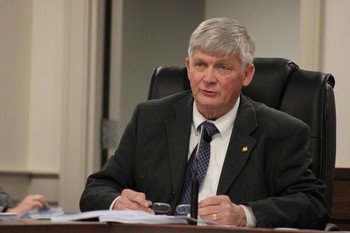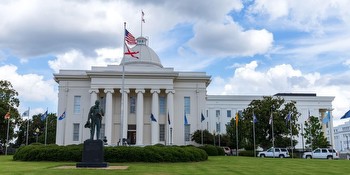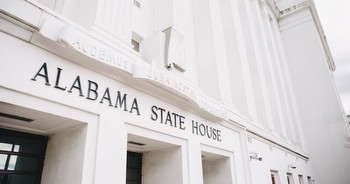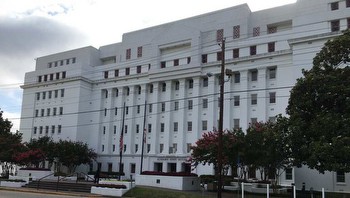House may vote on gambling
House may vote on gambling
If Alabamians get the chance to vote on a constitutional amendment on gambling, 63 members of the Alabama House will need to vote yes — most likely today.
The Alabama House had two in-session days left to vote on a comprehensive gambling package that includes casino gambling, sports betting and a lottery. It will all come down to if the gambling bills are able to garner 63 votes in the House. Since gambling requires a constitutional amendment, a 3/5-majority vote is needed to pass. Also, if the bills pass the House, the governor’s signature isn’t required.
Political analyst Steve Flowers said it’s difficult to predict what will happen with a vote in the House.
“If it’s going to pass, it will have to pass tomorrow,” Flowers said. “They only have two more voting days in the session and the last day will be too hectic to get this passed. I may come up and it will be a close vote. The bill passed the Senate, but it always had an uphill battle in the House.
Rep. Becky Nordgren, R-Gadsden, chairs the House Economic Development and Tourism Committee where the bill was debated on Tuesday. There was a lot of opposition to the bill — including a former governor and the Alabama Policy Institute.
“I have no idea whether or not it will pass,” Nordgren said. “Sixty-three votes in the House will be a tall drink of water.”
Nordgren said the bills were well-crafted pieces of legislation that were in-line with what Gov. Kay Ivey had requested. Nordgren said the bill actually reduces the number of gambling sites in the state to a total of nine locations, about half of the number of existing locations.
Gambling locations approved by the bill are at the existing greyhound racing facilities in Birmingham and Mobile and Macon County and Green County. A fifth location would be allowed at the Crossing at Big Creek in Houston County. The sixth location would be a new facility in Jackson or DeKalb county operated by the Poarch Band of Creek Indians. The bill also calls for the governor to negotiate a compact with the Poarch Creeks to allow gamblinig at the tribe’s resorts in Atmore, Wetumpka and Montgomery.
Nordgren said the reduction of gambling sites is where some of the opposition comes from. Green and Lowndes counties both passed local legislation allowing bingo-style gambling and policies have been in place for decades. If the proposed comprehensive gambling bill passes, Greentrack in Green County would remain, but all other gambling locations in Green County would have to be closed. All of the locations in Lowndes County would also have to be closed.
Nordgren said former Gov. Jim Folsom testified on behalf of Green County. At the time the gambling legislation was passed, Green County was facing bankruptcy. The bingo operations allowed the county to develop a stable source of revenue to support fire and healthcare services. The same holds true for the operations in Lowndes County.
However, Nordgren said the bill includes a gambling revenue sharing plan, which allocates a percentage of the gambling taxes collected by the state to be allocated to municipalities and counties across the state, not just locations where gambling is allowed.
That means Pike County would get a share of the revenue, even though gambling establishments won’t be allowed in the county.
Nordgren, said the main point of opposition from Green and Lowndes counties is whether or not the profit sharing will make up for the revenue lost from closing gambling operations.
Nordgren said the whole issue is convoluted because existing gambling operations are technically illegal, even though they were passed by a vote of the people. She said Section 105 of the Constitution of 1901 prohibits a local government from enacting a law that would supercede the state’s constitution. She said those facilities are operating under executive orders from previous governors.
You Might LikeFreshman U.S. Sen. Tommy Tuberville, R-Alabama, visited Lockheed Martin, Skirosky and Kimber on a stop in Troy Monday. Tuberville said...




































